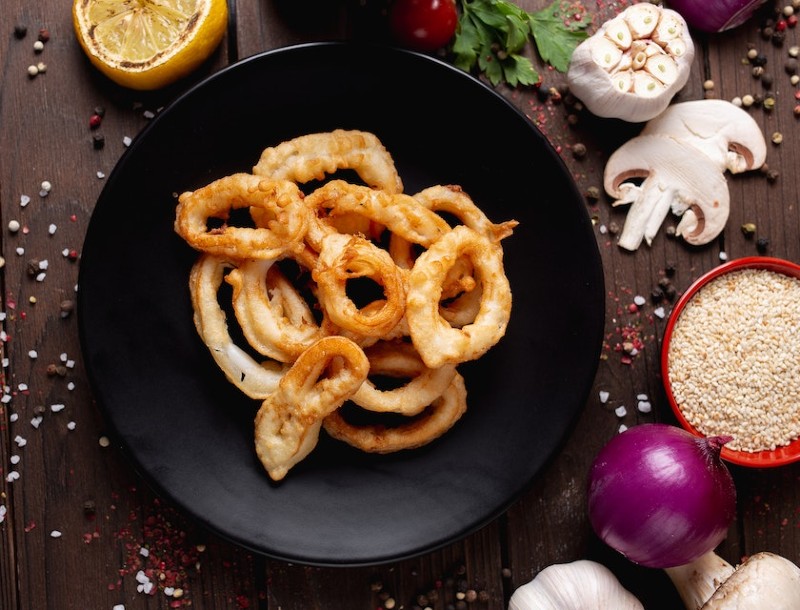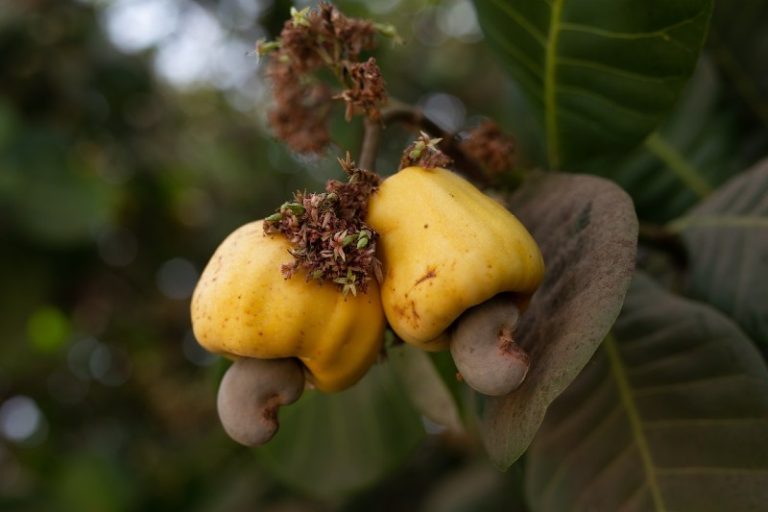What Does Calamari Taste Like?
Quick Answer
Calamari has a mildly sweet, nutty flavor with a hint of the sea. When cooked properly, its texture is tender, not rubbery. It is often served fried with a crispy batter, which complements its soft interior. The relatively neutral taste of calamari makes it a versatile ingredient that pairs well with various seasonings and sauces.
What Is Calamari?
Calamari is the culinary name for squid, a type of cephalopod mollusk.
It is a popular seafood dish in many cuisines around the world, including Italian, Greek, and Asian.
Calamari is often served as an appetizer and can be prepared in various ways, such as fried, grilled, or sautéed.
The meat is mildly flavored and has a tender texture when cooked correctly.
What Does Calamari Taste Like?
Natural Flavor of Calamari
Calamari is often described as having a mildly sweet flavor, which sets it apart from some other seafood options that might have a stronger, fishier taste. This sweetness provides a pleasing base that marries well with a variety of seasonings and sauces.
Nutty Undertones
In addition to its mild sweetness, calamari has a subtle, almost nutty undertone that complements its primary flavors. This complexity makes it an interesting choice for connoisseurs of seafood and provides a different experience than more uniformly flavored options.
Hints of Ocean/Sea
As with many seafoods, calamari carries with it a slight taste of the sea. This briny nuance is not overpowering but does remind the eater of its oceanic origins, adding an extra layer to its overall flavor profile.
Comparison with Other Seafood
When compared to other seafood like shrimp or fish, calamari’s flavor is generally milder and less “fishy.” Unlike shellfish such as oysters and clams, which have a more distinct and stronger oceanic flavor, calamari’s taste is more subdued and versatile.
Its unique blend of sweetness, nutty undertones, and slight brininess make it a unique offering in the seafood category.
What is The Texture of Calamari?
When properly cooked, calamari should have a tender texture that’s easy to bite through. The meat should not be rubbery or tough, but rather soft and almost melt-in-your-mouth.
The right texture is one of the key elements that make calamari a popular choice for both appetizers and main dishes.
Tender vs. Non-Rubbery
The tenderness of well-cooked calamari contrasts sharply with the rubbery, chewy texture that can result from overcooking.
Achieving this ideal texture requires precise timing and temperature control. A tender texture is what sets apart high-quality calamari dishes from those that are less well-prepared.
The Impact of Cooking Time on Texture
The cooking time is crucial for achieving the ideal texture in calamari. Whether you’re frying, grilling, or sautéing, a brief cooking period – often just a couple of minutes per side – is usually sufficient.
Overcooking calamari even by a minute can make it rubbery and tough, ruining its natural, tender texture. Similarly, undercooking can result in a slimy, unpleasant mouthfeel. Therefore, paying close attention to cooking time is essential for enjoying calamari at its best.
FAQs
Is The Taste Of Calamari Similar To Any Other Seafood?
Calamari is often compared to shrimp in terms of its mild flavor profile, but it has its own unique taste that includes nutty undertones. It’s less briny than shellfish like oysters and clams.
Does Calamari Taste Like Chicken?
While some people describe the texture of fried calamari as somewhat similar to chicken tenders, the taste is not the same. Calamari has a mild, slightly sweet, and oceanic flavor, distinguishing it from the more neutral taste of chicken.
How Does Cooking Method Affect Calamari’s Taste?
Different cooking methods can bring out various aspects of calamari’s flavor. Frying it in a light batter adds a crunchy texture and can enhance its natural sweetness, while grilling might bring out more of its nutty undertones.
Does Calamari Taste Fishy?
Generally, calamari is not considered to have a “fishy” taste. It’s much milder in flavor compared to fish like mackerel or anchovies. Fresh calamari should not have an overly fishy or off-putting smell either; such an odor could indicate that it is not fresh.
What Sauces Go Well With Calamari?
Calamari pairs well with a range of sauces including marinara, aioli, and tartar sauce. A simple squeeze of lemon is also a popular choice for enhancing its flavor.
Does The Size Of The Calamari Affect Its Taste?
Smaller calamari are generally considered to be more tender and sweet, while larger ones can be a bit tougher and may have a more pronounced flavor. However, the quality of the cooking can make a significant difference in texture and taste, regardless of size.
How Can I Avoid Making Calamari Taste Rubbery?
The key to avoiding rubbery calamari is to cook it quickly at a high temperature. Overcooking will result in a tough, rubbery texture. Aim for just a couple of minutes per side whether you’re frying, grilling, or sautéing.
Can I Eat Calamari Raw?
While some cuisines do feature raw squid, it’s essential to use extremely fresh, high-quality seafood prepared under sanitary conditions to minimize the risk of foodborne illness. Generally, calamari is cooked to bring out its flavors and achieve the desired texture.
What Wines Pair Well With Calamari?
Light and crisp white wines like Pinot Grigio, Sauvignon Blanc, or a dry rosé typically pair well with calamari, complementing its mild flavor and often highlighting its sweet and nutty undertones.
Is Calamari An Acquired Taste?
For most people, calamari is not considered an acquired taste, especially when compared to more intensely flavored seafood options. Its mild flavor and tender texture make it a popular choice even for those who are not regular seafood eaters.
Is Calamari Healthy To Eat?
Calamari is generally considered a nutritious choice when included as part of a balanced diet. It is low in calories and fat, and a good source of protein. Calamari also contains essential nutrients like vitamin B12, zinc, and selenium.
However, it’s important to consider how the calamari is prepared. Deep-fried calamari, for instance, will be higher in calories and saturated fats. For a healthier option, you may opt for grilled or sautéed calamari.
Like any seafood, it’s important to consume calamari in moderation due to concerns about heavy metals and other contaminants.
What Does Calamari Smell Like?
Fresh calamari should have a mild, ocean-like scent. It should not have an overly fishy or ammonia-like smell, as such odors could indicate that the seafood is not fresh.
When cooked, calamari emits a more pronounced but still mild, oceanic aroma that should not be off-putting. If you detect a strong, unpleasant odor, it’s best to avoid consuming it.
Does Calamari Taste Like Octopus?
While calamari and octopus come from the same cephalopod family, they have distinct flavors and textures.
Calamari is generally milder in taste, slightly sweet, and has a more tender texture when cooked correctly. Octopus, on the other hand, has a stronger, more robust flavor and a chewier texture.
Both can become rubbery when overcooked, but octopus usually requires a longer cooking time or specific preparation methods to tenderize it.
Can You Eat Calamari Raw?
It is possible to eat calamari raw, particularly in dishes like sushi or sashimi, but it must be extremely fresh and prepared under sanitary conditions.
Consuming raw or undercooked calamari poses a risk of foodborne illnesses and parasitic infections. Therefore, it is generally recommended to eat calamari that has been properly cooked, unless you are confident in the source and preparation.
Is Calamari The Same as Cuttlefish?
Calamari and cuttlefish are both cephalopods, but they are different species. Calamari is made from squid, while cuttlefish is its own type of mollusk.
They have similar flavors, being mildly sweet and oceanic, but cuttlefish often has a firmer texture. Cuttlefish ink is also commonly used in cooking, something less frequently seen with squid.
Can You Eat All Of The Calamari?
Generally, the tentacles and body (or mantle) of the squid are the parts that are commonly eaten and found in dishes labeled as calamari.
The head, beak, ink sac, and internal organs are usually removed during cleaning and are not typically consumed. Some recipes and cultures do utilize more of the squid, but for most culinary purposes, the tentacles and body tubes are the primary parts that are cooked and eaten.




